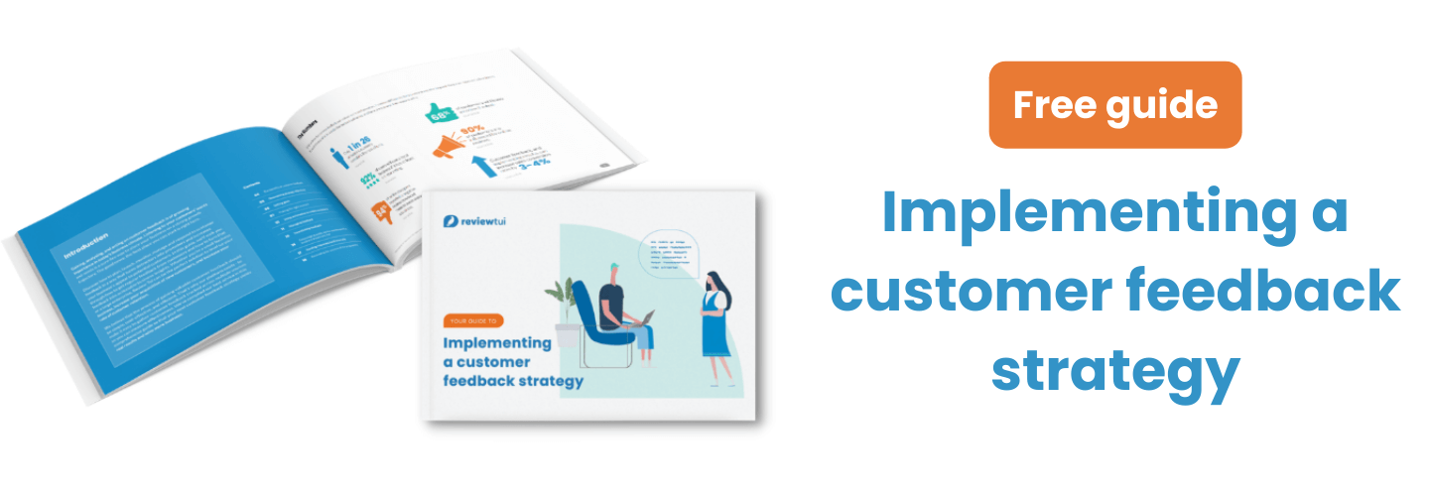Testimonial vs review: What makes them different?
It’s pretty common these days for a business to request your feedback on your experience, whether that be in-person, via an online survey, or through a feedback box, to list a few. But what differentiates such feedback from a testimonial to a review? At the end of the day, both feedback types are very similar so is one more beneficial than the other when it comes to growing or obtaining more business?
Firstly, here’s an outline of a testimonial vs a review:
- Testimonials are gathered, owned, and curated by the business that provided the service/product.
- Reviews are collected and managed by a third party, without the business being involved in the process.
The way they are gathered and subsequently used in marketing gives one greater credibility than the other. But before we go into which one your customers are more likely to value, let's take a slightly deeper dive into the challenges and opportunities of both.
What are testimonials?
Testimonials typically come from customers with positive, long-standing relationships with your business who are happy to share their great experiences. Businesses will usually take their pick of the crop and ask customers who they are confident will leave a glowing response. A poor testimonial can be hidden from the likes of a business’ marketing - it’s not very common for a negative testimonial to be published on a company’s website. Think about it - have you ever seen this occur?
Testimonials are used to highlight and emphasise the best of a company’s profile and offerings, from customers who are elated by their experience and are happy to share it with the world.
What are reviews?
Reviews are commonly what you’ll stumble upon when searching for a business online. Google reviews are a prime example of this as, for almost every established business, they appear every time someone Googles the business. These reviews come in the form of 0-5 stars - ringing any bells yet? Similar reviews can be found on the likes of a company’s Facebook page. As another example, when you go to book a holiday on Air Bnb do you usually dig a little deeper to find out if the feedback from previous customers was positive or negative? This is another example of reviews! They are unfiltered and candid opinions of regular peoples’ experiences.
Reviews cannot be swept under the rug if a business doesn’t like what the customer had to say. They are openly available to the public to share experiences, whether they were positive or negative. If a business receives a poor review, the only thing they can do is respond to it and try and remedy the problem.
Reviews are hosted on independent platforms which ensures everything is kept in the open and nothing can be hidden from the public eye. Therefore, reviews are a very candid feedback method where nothing is filtered and prospective customers can gain honest insight into the service/products of any business.
Which [testimonial or review] is better for the business, and which is better for the customer?

If you're a business it can be scary opening yourself up to reviews. You never know what people are going to say and you can't stop a bad review from going online for future customers to see.
This is why customers like them so much. They give an honest look at the business and its service. Many customers will check out the reviews before buying to see if they're going to get a good experience or not.
If you're a business getting testimonials; these are still good for potential customers to see. But also be aware that customers will seek independent information about you before doing business with you.
80% of customers research a product or service before speaking to a salesperson, and this includes reading reviews. If you're a customer, it's important to take both with a pinch of salt.
You don't know whether someone giving a 5-star review has the same standards as you. Likewise, the 1-star review may be someone that's impossible to please. When looking at a testimonial remember that the words will be true, but you don't know how long ago the feedback was given and it's likely to be a cherry-picked response.
The trick is to look across both reviews and testimonials, and look at the overall weight of comments - are they positive or negative? Do the negative comments all focus on the same topic, like service? Were a bunch of bad comments uploaded on the same day about the same incident? Could this be one disgruntled group, or maybe the business was experiencing unforeseen issues the reviewer wasn't aware of? No matter the comment it's important that you respond to negative reviews to show you care about people's experiences.
Both are incredibly important tools in marketing to new clients and getting either should form part of your sales or customer management process. In the inbound methodology, we often talk about delight being the last phase of selling. When people are in this phase, they're primed for a review or feedback.
Is opening your business up for reviews beneficial?
Opening your business up for potential criticism is daunting, but it’s vital to be confident enough in the quality of your services that you shouldn’t fear criticism. At the end of the day, you’re running a unicorn-type of business if you don’t receive any negative feedback. A poor review here and there is inevitable, but how you deal with these reviews is what will set you out from the crowd.
If your business is left with a negative review, it’s imperative that you take the time to respond and make an effort to remedy the situation. This will relay to prospective customers that even if your business makes a mistake, you’re willing to go the extra mile to make things right. On the flip side, simply ignoring a negative review can come across as though your business doesn’t care about the opinion of others which can be a turn-off for future business.
Another strategy is to drown out each negative review with plenty of positive ones. A review gathering platform can help make this an easy task by automating the process of asking for reviews, and offering customers different outlets to leave them on (for example Google, or Facebook) ensuring that no matter where customers are researching you, you have all bases covered.
Review Tui is a gathering platform already in advanced customer trials and is proven to increase online reviews as well as provide valuable business insight into customer satisfaction. The platform is currently still in testing but early access can be requested, with updates on features, launch dates, and case studies to be shared via email over the coming weeks.
To register your interest simply visit the registration page by clicking the link below.




